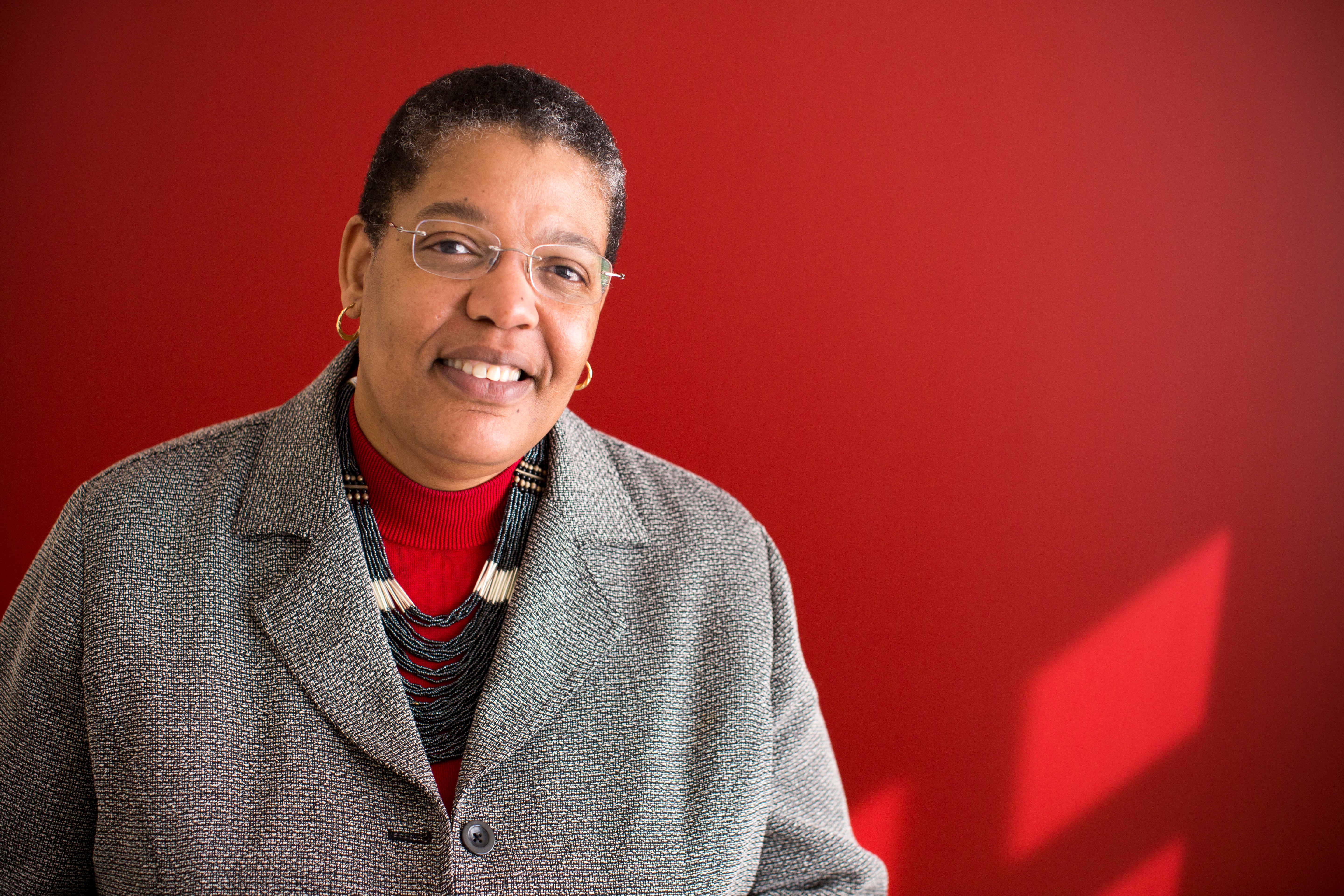 Michelle A. Williams, SM ’88, SD ’91, a distinguished epidemiologist and award-winning educator known for her influential studies of maternal and child health around the world, will become the next dean of the Harvard T.H. Chan School of Public Health, starting in July.
Michelle A. Williams, SM ’88, SD ’91, a distinguished epidemiologist and award-winning educator known for her influential studies of maternal and child health around the world, will become the next dean of the Harvard T.H. Chan School of Public Health, starting in July.
Since 2011, Williams has been the Stephen B. Kay Family Professor of Public Health and chair of the Department of Epidemiology at the Harvard Chan School.
The principal investigator on several international research projects and training grants funded by the National Institutes of Health, and coauthor of more than 400 published research papers, Williams is also the faculty director of Harvard Catalyst’s Population Health Research Program and the Health Disparities Research Program. Her scholarship is especially known for its creative integration of epidemiological, biological, and molecular approaches to a range of public health challenges, and her teaching and mentoring have been recognized with awards from Harvard, the University of Washington, the American Public Health Association, and the White House.
“Michelle Williams is an eminent epidemiologist, an outstanding teacher and mentor, and an energizing leader and institutional citizen, impassioned about the power of public health to change people’s lives for the better,” said Harvard University President Drew Faust in announcing the appointment on February 19.
“She is a skilled builder of bridges—between the theoretical and the practical, the domestic and the international, the different disciplines that drive the School’s academic endeavors, and the different communities that shape its identity and aspirations,” Faust added. “I know she will approach her new role with the intelligence, dedication, integrity, and humane spirit that she brings to all she does.”
“I am honored and excited by the opportunity to lead the Harvard Chan School, and grateful to President Faust for inviting me to serve in this role at such a crucial moment for public health in the United States and around the world,” said Williams. “As an alumna and faculty member, I have witnessed the transformative impact that this institution can have in education, research, and discovery related to the health of communities in need. We have an imperative to lead and to serve, and I am looking forward to working even more closely with the School’s faculty, students, staff, and alumni to build on the School’s achievements under [prior Dean] Julio Frenk’s remarkable leadership and to advance our collective commitment to understanding and confronting public health challenges worldwide.”
A 1984 graduate of Princeton University, where she majored in biology, Williams went on to receive an MS in civil engineering from Tufts University in 1986. Continuing her studies at the Harvard Chan School, she earned her SM in population science in 1988 and her SD in epidemiology in 1991. After a postdoctoral research fellowship at the University of Washington School of Public Health and Community Medicine, she joined the UW faculty as an assistant professor of epidemiology in 1992.
Emerging as an internationally recognized epidemiologist and educator, she rose through the UW faculty ranks to become a full professor of epidemiology in 2000. While at UW, she was highly active in the Center for Perinatal Studies at Swedish Medical Center in Seattle, where she served as codirector from 2000 to 2011. From 1992 to 2010, she was an affiliate investigator at Fred Hutchinson Cancer Research Center in Seattle, and from 2008 to 2011 she held a joint appointment in global health at UW.
In 2011, Williams was recruited back to Harvard as the Stephen B. Kay Family Professor of Public Health in epidemiology and to become chair of the Department of Epidemiology. Her research focuses on integrating genomic sciences and epidemiological research methods to identify risk factors, diagnostic markers, treatments, and prevention targets for disorders that contribute to maternal and infant mortality. Her work is particularly noted for its sophisticated linkages between epidemiology and allied disciplines and for its broad international scope, encompassing studies in Africa, Asia, and South America, as well as the United States.
As an educator, Williams has led grants, funded by the National Institutes of Health, that are designed to enhance the education of members of groups under-represented in the biomedical and quantitative sciences and to train aspiring epidemiologists and other public health investigators in several dozen countries. Last year, she received the Harvard Chan School’s Outstanding Mentor Award, having previously been recognized with the American Public Health Association’s Abraham Lilienfeld Award for education in epidemiology (2007), and the White House’s Presidential Award for Excellence in Science, Mathematics, and Engineering Mentoring (2012). As department chair, Williams has guided the Department of Epidemiology through a period of notable transition, while contributing to the conception and implementation of a range of School-wide initiatives.
“Michelle has been a valued colleague since she returned to Harvard five years ago,” said Acting Dean David Hunter. “Along with many others, I’ve come to admire her for her collaborative research, her mentorship of students and faculty colleagues, her work to strengthen her department, her contributions to shaping the new PhD program in population health sciences, and her important focus on health disparities through Harvard Catalyst. I’m confident our School will be in excellent hands.”







